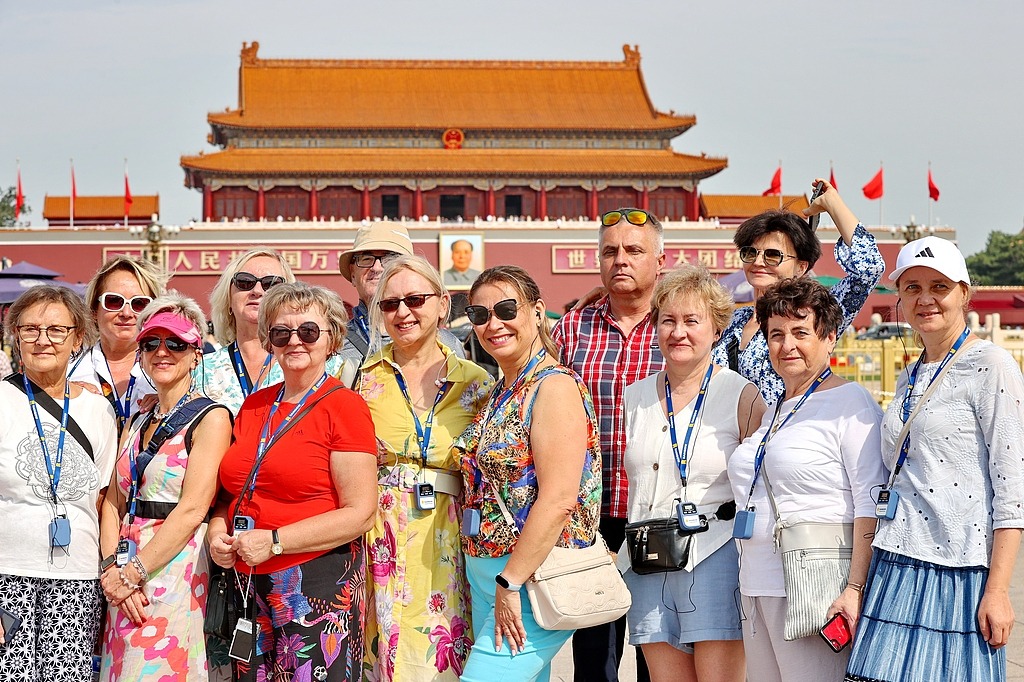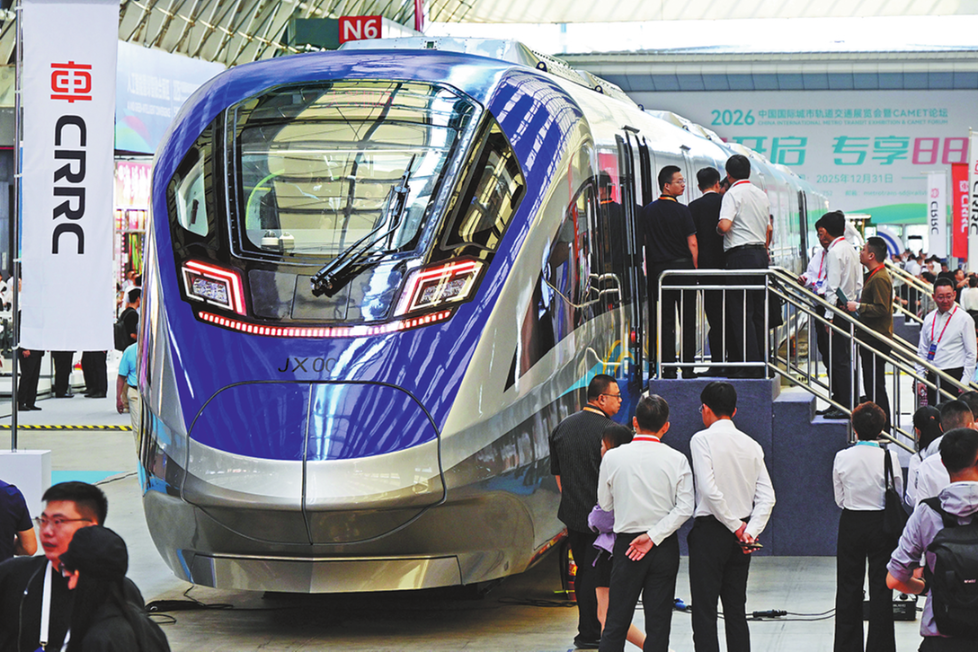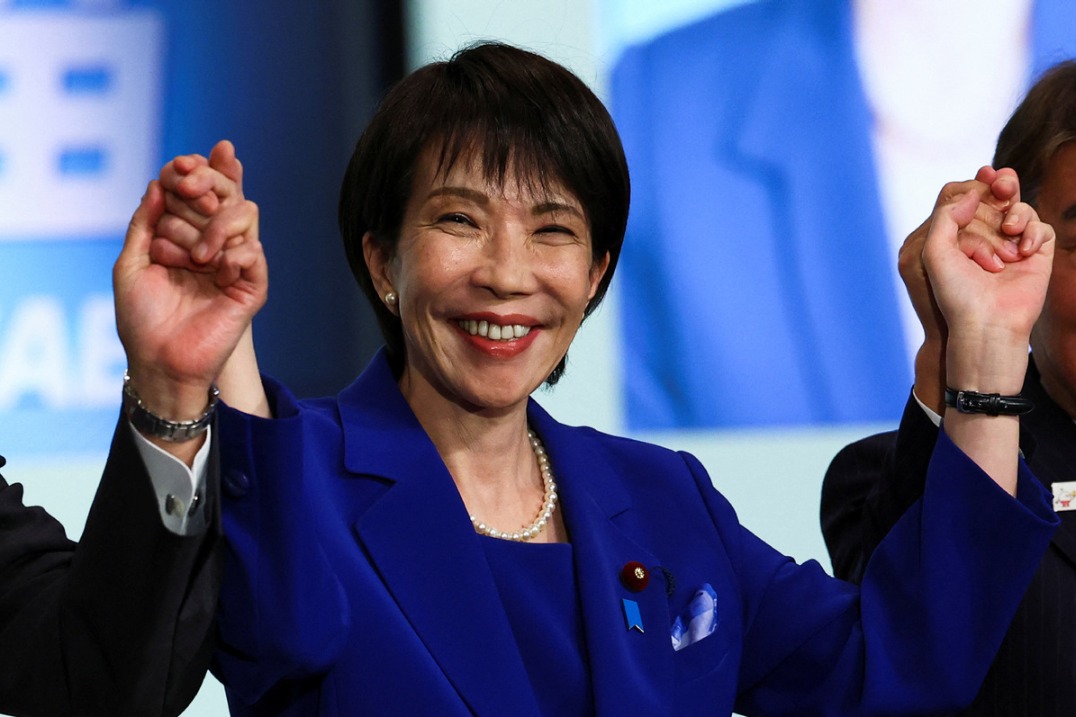Doomsday tariffs threaten global stability


As I write, the United States and China are cascading into the abyss of an all-out trade war, the mother of economic battles that could be the harshest in human history, harming not only the American and Chinese people, but all the people gracing planet Earth.
The dreaded story hardly needs retelling: US President Donald Trump is threatening to increase tariffs on Chinese goods up to 125 percent, if China does not back down and rescind its retaliatory tariffs to Trump's tariffs, while China is strongly and confidently asserting that it will not only not back down, but also "fight to the end". Trump says he is leveling the playing field after decades of abuse, while China says it does not want a fight but is not afraid of a fight, and the country has prepared a sophisticated toolkit of countermeasures.
Trump, for his money, luxuriates in his unpredictability. He does not busy himself with consistency or coherence but only with outcomes, the results of the trade. He thrives on being impulsive and hard to handle, giving him, he believes, a negotiating advantage. While uncertainty is the bane of business and investment, it is for Trump his "trump card" (pardon the pun). Shocking the international system, which he feels has treated the US "very unfairly" for decades, he gets everyone's attention. I cannot verify the claim that more than 50 countries are trying to talk with Trump, willing, for the first time, to reduce their own tariffs and restrictions on US goods.
Yet at this moment of bleak US-China relations, with stock markets cratering, I shall risk all to proclaim my odd optimism. I shall explain why at the end of this short article, and you can make your own judgment.
But first, on tariffs. Stated simply, tariffs suboptimize. Tariffs reduce economic efficiency for the collective whole — here, the entire world — by undermining the fundamental economic principle of comparative advantage. Whoever produces goods or services with similar quality for lower prices gets the business. That tariffs suboptimize for the collective whole is uncontroversial. What is controversial is how tariffs also protect individual subgroups and how to optimize the tension between suboptimizing and protection.
It is natural that developing countries are entitled to take more protectionist measures than already developed countries. This allows local companies to sprout and grow; otherwise, they would be crushed by multinational mega-companies. Yet as countries develop — and this applies especially to China — proper permissions of the past become less applicable as operating principles of the present.
China enjoyed its spectacular and sustained economic development because, to oversimplify, it could produce quality products at the lowest cost. China's hard-working laborers, accepting low wages (though higher than they had as farmers), raised the standards of living of hundreds of millions of Chinese people, the greatest reduction of poverty in human history. But in the process, millions of manufacturing jobs in developed countries, especially in the US, were eliminated. Humankind as a whole enjoyed a huge net gain, but for those who lost their jobs, it was devastating, and the political fallout engendered protectionism and deglobalization.
There is no magic solution. Ideally, industrial restructuring in developed countries would focus on emerging technologies for the next generation, while social safety nets would take care of those in the current generation who could not be retrained. Moreover, the principle of comparative economic advantage would continue, so that as Chinese workers rightly demand higher wages, the manufacturing of lower value-added products would shift away from China and toward less-developed countries, such as those in Southeast and South Asia and in sub-Saharan Africa.
In a peaceful world, all this would make sense. But that world is not our world. While win-win is the ideal goal, zero-sum is often the sad reality. Our global economic ship has become unmoored, adrift in the raging currents of US-China conflict.
When President Xi Jinping says China will continue opening up to the world, he really means it — it's not just good PR. Chinese leaders have recognized, since the launch of reform and opening-up, that the reason China declined so precipitously in the 19th century was its long-term isolation, which they are determined not to repeat.
The swirl of punditry is a blizzard of despair. Trillions of dollars of wealth have been wiped out from US and world equities, the losses gyrating daily. Hence, some see a 60 percent chance of a global recession and the collapse of the 80-year, post-World War II international order. The end of Pax Americana? An emergent geopolitical jungle where the powerful pillage the weak?
I dare not predict what will happen tomorrow — literally tomorrow — but here's why I'm risking all to proclaim my odd optimism.
Consider the social constraints facing the US and China, as well as the severe and escalating economic consequences. Public confrontation and nationalism, exacerbated by social media, are at a fever pitch. The situation is so volatile and so potentially calamitous that only a direct deal between the two countries' presidents can restore rationality and calm emotions. Counterintuitively, if the confrontation were less severe, I'd be more pessimistic. If the circumstances were "just" the first rounds of tariffs, then it would be bad but not calamitous, and while it would be desirable for the two presidents to engage and resolve the bilateral disputes, it would not be mandatory. Now, it is mandatory.
The author is an international investment banker, chairman of The Kuhn Foundation, creator/host of Closer To Truth on science and philosophy, and a recipient of the China Reform Friendship Medal.
The views don't necessarily reflect those of China Daily.
If you have a specific expertise, or would like to share your thought about our stories, then send us your writings at opinion@chinadaily.com.cn, and comment@chinadaily.com.cn.


































